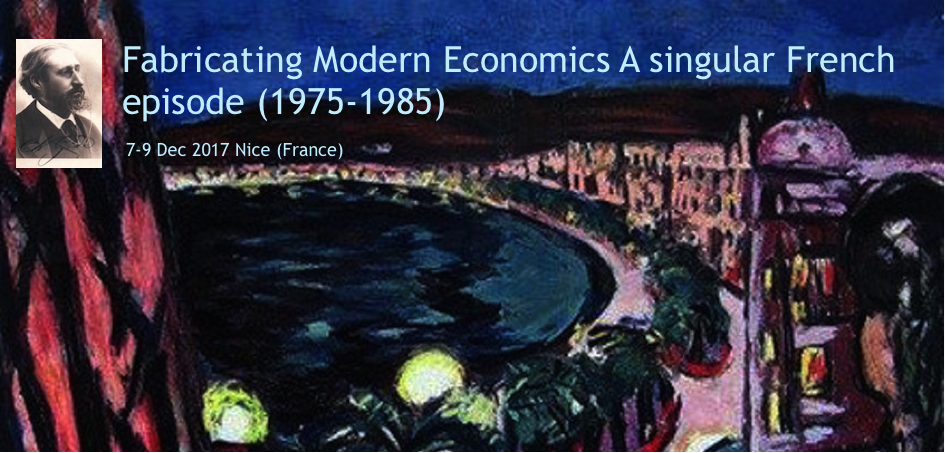
Call for paperAs a result of its post 1945 history, up to around 1965, the development of economics in France was mostly in line with the interwar period. From the mid to late sixties, the discipline of economics became more internationalized although in Coats (1997). France did not strictly follow that process. Indeed, not only the various subfields of economics were not homogenously affected by this process of internationalization but also French academics have been at the origin - or at least among the main proponents - of many emerging new approaches. This period can be considered to have continued until the mid-1980s.
This conference is an opportunity for historians of economic thought to investigate a period which so far has not received the systematic attention it deserves. Analysis of the theoretical characteristics of those approaches and of their impact on public debates are worthy of greater attention as are the institutional and intellectual contexts surrounding their emergence and development. In addition, the rise and then progressive decline (toutes?) of these approaches constitute a typical and original case which should provide a better understanding of how ideas emerge and diffuse in various national and international academic, political, historical contexts. It should enable a deeper perception of how internationalization (and also transnationalization) of our discipline occurred. We would encourage papers focused on what happened during this period but this should not exclude examination of the wider context in order to explain for instance, why / how those approaches developed, and why they disappeared increasingly from the forefront of academic research. Below we offer some suggestions for possible topics. This list should be seen as prompting ideas and not as being exhaustive: - The specificities of the various French (or Francophone) approaches during the period (for instance, disequilibrium theory, sunspot equilibria, temporary general equilibrium theory, French (or Francophone) contribution to general equilibrium theory, emergence of game theory in France, post-Keynesian economic theory, Circuit school, neo-Ricardian economics, theory of regulation, Austrian School of economics, Marxist economic thought, etc.) - Origins and intellectual contexts of the various approaches - The role of economic societies (such as for instance AFSE, ACSES, APSES, etc.) - The role of academic journals (new and already established ones) during this period. - The building up of research communities in the 1970s / 1980S - Influence of philanthropic societies - Reception and influence of these French academic contributions at the international (European) level - The influence of Anglo-Saxon economic thought on the development of these approaches - Impact of those approaches on public debates and economic policy decisions - Nature and specificities of formal and conceptual tools - French economists abroad ____________________________________________________________________________________________________
Proposals for papers or sessions on all aspects which would allow to understand this episode are welcome. An abstract of a maximum of 1000 words for a paper and 2000 words for a session should be sent to this email address (Gide2017@gredeg.cnrs.fr) before June 15, 2017. Following the symposium, the organizers of the Journées will propose a selection of papers to be submitted for two special issues, one with OEconomia – History | Methodology | Philosophy, and History of Economic Ideas. Important deadlines The deadline for submissions is June 15, 2017. Proposals (for individual papers or sessions) should be sent to (Gide2017@gredeg.cnrs.fr). Authors will be notified about the result of the selection process on July 7, 2017. The authors of abstracts that have been accepted must send their full paper by November 15, 2017. |

